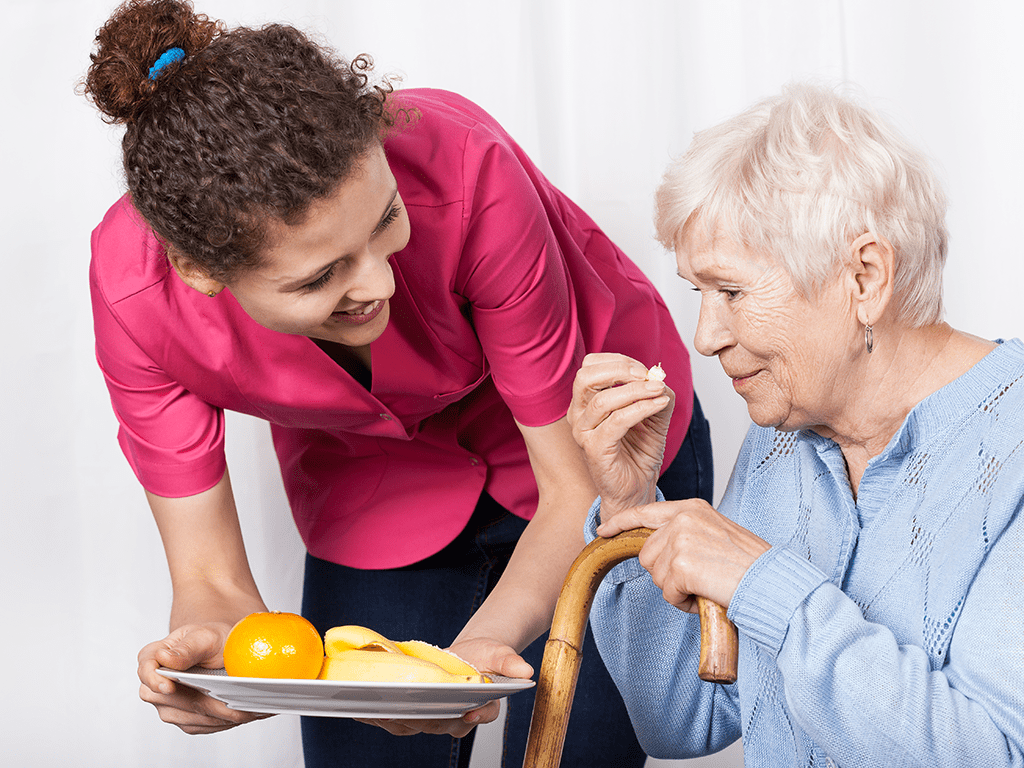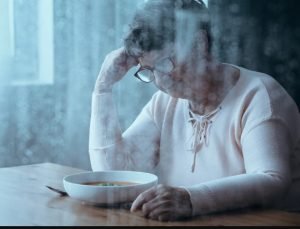

Nutrition for the human body is vital at every stage of life, but as you getting age, staying well-nourished is even more important in life
Having good nutrition is critical to overall health and well-being for human beings in every stage of life. If it is deficient there will be problems caused by the same.
Problems caused by Malnutrition.
- Week immune system, which increases the risk of getting infections.
- Poor wound healing and blood clotting
- Weakness for muscles and bone mass decreasing which may lead to falls and fractures and more time for healing if it happens.
- Higher risk of hospitalization
- Increased risk of death
Factors contributing to Malnutrition.

The factors directly affecting malnutrition will be too little food or a diet lacking nutrients. But in real life, it may result also from a combination of physical, psychological and social issues.
- Normal age-related changes: Taste buds changes, smell and appetite decrease with the age, makes more difficult to enjoy food while eating and love the food & eating habit.
- Illness: Inflammation and illness related to disease may contribute to less appetite and changes in how the body processes nutrient intakes.
- Impairment in the ability to eat: Elders may be feeling difficulty to chewing or swallowing their food, poor dental health or limited ability in handling tableware happens occasionally.
- Dementia: Memory & behavioural problems from Alzheimer’s disease or related dementia can result in forgetting to eat, not buying groceries or other irregular food habits.
- Medications: Some types of medications will affect appetite or the ability to absorb nutrients.
- Restricted diets: Restrictions in a usual diet for managing medical conditions – such as limits on salt, fat or sugar, which may also contribute to inadequate eating.
- Limited Income: Some older adults may have trouble affording groceries, especially if they are taking expensive medicines.
- Reduced social contact: Older adults who eat alone might not be enjoying their meals as before and they lose their interest in cooking and eating.
- Limited access to food: Elders with limitation in mobility or travel may not be having access to food or right types of food.
- Depression: Failing health, lack of mobility, grief, loneliness, etc. may result in depression, which may cause loss of appetite.
- Alcoholism: Over or too much alcohol consumption can interfere with the digestion and absorption of nutrients. Improper use of alcohol results in poor eating habits and poor decisions about nutrition.

How to monitor your nutrition and prevent malnutrition?
It’s always better to monitor or watch your health by yourself or by a caretaker or adults. There are certain steps to monitor nutritional health; watch on weight loss and address the risk factors of malnutrition. Check the following points also:
- Weight Monitoring: Check elder’s weight at home. Keep a weekly record and identify the changes in clothes fit which also helps to identify the weight loss.
- Observe habits: Observe the habits and activities while spending time with elders, mostly during mealtimes, or in a hospital or care facility. Note what kind of food is eaten and how much and observe the changes also.
- Keep track on medications: Record all medications; reason for taking each medicine with its dosage and revision in dosage, treatment schedules and possible side effects.
- Help with meal plans: Plan for healthy meals or prepare the same early before mealtime. Also plan/prepare a shopping list to buy all needed items and save money.
- Use local services: Can depend on local home delivery agencies who handle food and online apps, use home care services or home nursing services, choose nutrition services or food pantry also.
- Make meals social events: Conduct or join in social programs where community members can eat together by self-cooking or eat at restaurants once in a while.
- Encourage regular physical activity: Exercise daily, will stimulate appetite and strengthen bones and muscles
Improving Nutrition

Some of the good and healthy diet habits to follow:
- Nutrient-Rich Food: Try to include nutrient-rich foods which include fresh fruits & vegetables, whole grains, fish and lean meats.
- Herbs and Spices: Include spices and herbs for flavoring purposes with meals and excite your tastebuds and interest in eating.
- Healthy Snacks: Consume nutrient-rich snacks between meals with fruits, vegetables or low-fat dairy products.
- Nutritional Supplements: Try to have supplemental nutrition drinks for calorie intake.
Talking to doctor
Always consult with your family doctor about your concerns regarding the older adult’s weight, change in appetite, or any other concerns about nutrition and health. They can also help in:
- Regular weight monitoring and screening for malnutrition.
- Assess and predict future medical conditions, which may result in weight loss and nutritional health.
- Treating underlying conditions causing malnutrition.
- Recommending vitamin and mineral supplements.
- If any changes for prescription medicines after a routine check-up.
- Recommending the appropriate daily calorie intake.
- Routine home care service and home nursing service at your doorstep.
Always take care of yourself and better be alert on elders, they are the same as small kids.
